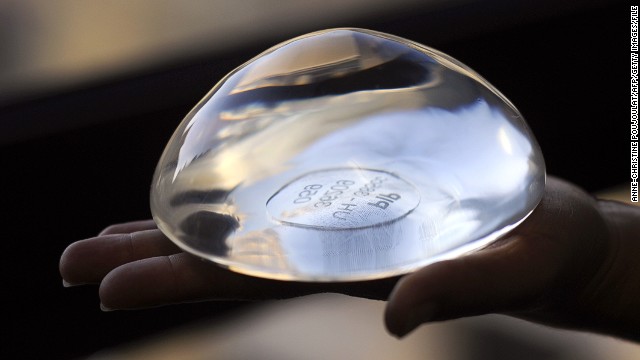More than 300,000 women received implants that were made in the 10 years up to 2010 by PIP (Poly Implant Prothese) and filled with cheap, industrial-grade silicone not cleared for human use.
“It’s a relief,” one victim who identified herself as Christine told a news conference. “The legal process ends today but it doesn’t end here for my health. I still have silicone in my body.”
The case was brought by women who said they had suffered long-term health problems after receiving the PIP implant.
Hundreds among them should be compensated, the court ruled, though it dismissed the request for damages by several hundred others.
TUV Rheinland said it challenged the court’s decision to hold the company even partially liable. It noted that the court rejected the claims from women who received implants before 2006.
“The evidence in this case clearly shows that TUV Rheinland acted diligently, in compliance with acceptable regulations, and it was not its role to track down the fraud pursuant to the regulation,” the firm said in a statement.
Advocacy group PIP Implant World Victims Association (PIPA) said the ruling would have implications for tens of thousands more women from dozens of countries around the world who received PIP implants.
PIPA is seeking compensation for some 20,000 victims in several separate cases in France. It said yet more women, from Britain to Colombia, could come forward as a result of Thursday’s ruling.
“We are delighted with this outcome which definitively puts an end to the doubts about TUV’s responsibility,” said lawyer Olivier Aumaitre, who represented some of the women on behalf of PIPA.
Compensation claims
At the time, Mas told the police investigation his employees would remove evidence of the industrial silicone gel before TUV Rheinland made its annual inspections.
The implants fraudulently manufactured by PIP were up to six times more likely to rupture than other implants, according to Britain’s National Health Service.
Silicone has also been found to have leached into the bodies of women whose implants had remained intact.
Victims had suffered auto-immune disease, cancer scares, and prolonged anxiety, while the incidence rate of autism among children who were breastfed by mothers with PIP implants was far higher than normal rates, PIPA said.
PIPA said damages ranging between 20,000 and 70,000 euros were being sought for each victim. A first ruling on compensation was expected in September.
Aumaitre said the court’s ruling meant that TUV’s negligence left it solely responsible for paying damages.
“After 10 years of waiting and fierce combat, the German certifier will have to fully compensate the victims,” said Aumaitre.
You may also like
-
Afghanistan: Civilian casualties hit record high amid US withdrawal, UN says
-
How Taiwan is trying to defend against a cyber ‘World War III’
-
Pandemic travel news this week: Quarantine escapes and airplane disguises
-
Why would anyone trust Brexit Britain again?
-
Black fungus: A second crisis is killing survivors of India’s worst Covid wave

